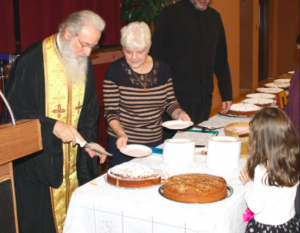Title: Reading Coffee Grinds
General Information about Item:
- Genre: Customary Folklore: Superstition
- Language: English
- Country: Greece
Informant Data:
- Vungelia Glyptis was a 2017 graduate of Dartmouth College. Both of her parents are Greek (from the island of Chios). Her maternal and paternal grandfathers are actually from the same village. Everyone in her house speaks Greek, but she usually speaks English with her parents. They follow very old-school customs and superstitions.
Contextual Data:
- Social Context: Usually someone of the older generation will take the coffee cup that a younger family member just drank out of to study the coffee grinds. The older person may also teach the younger person how to read it so that it is something they can continue to do with family members in the future.
- Cultural Context: Like many Western cultures, coffee is very popular and Greek coffee is especially unique. It is thicker and grittier than normal coffee so it often leaves an intricate stain, compared to American coffee which just runs right out of the cup. For this reason, this superstition could not be performed with other coffee.
Item:
- After finishing a cup of coffee, someone, often Yia-Yia, will flip the cup over to let the grinds and excess drops run up the side of the cup. She then can look at the different patterns on the cup and “read” it. It is considered a skill that someone has, but the superstition says that one can tell their future based on the patterns on the coffee cup, similar to palm reading.
Associated file (a video, audio, or image file):

This is a cup that has been flipped after drinking all of the Greek coffee. Someone who is trained to do so would be able to read the pattern in it to predict the drinker’s future.
Transcript of Associated File:
- None
Informant’s Comments:
- None
Collector’s Comments:
- None
Collector’s Name:
- Interviewed by Carmen Braceras
- Published by Katie Spanos
Tags/Keywords:
- Greek superstitions, Greek coffee, cup, grinds, reading, future, pattern


